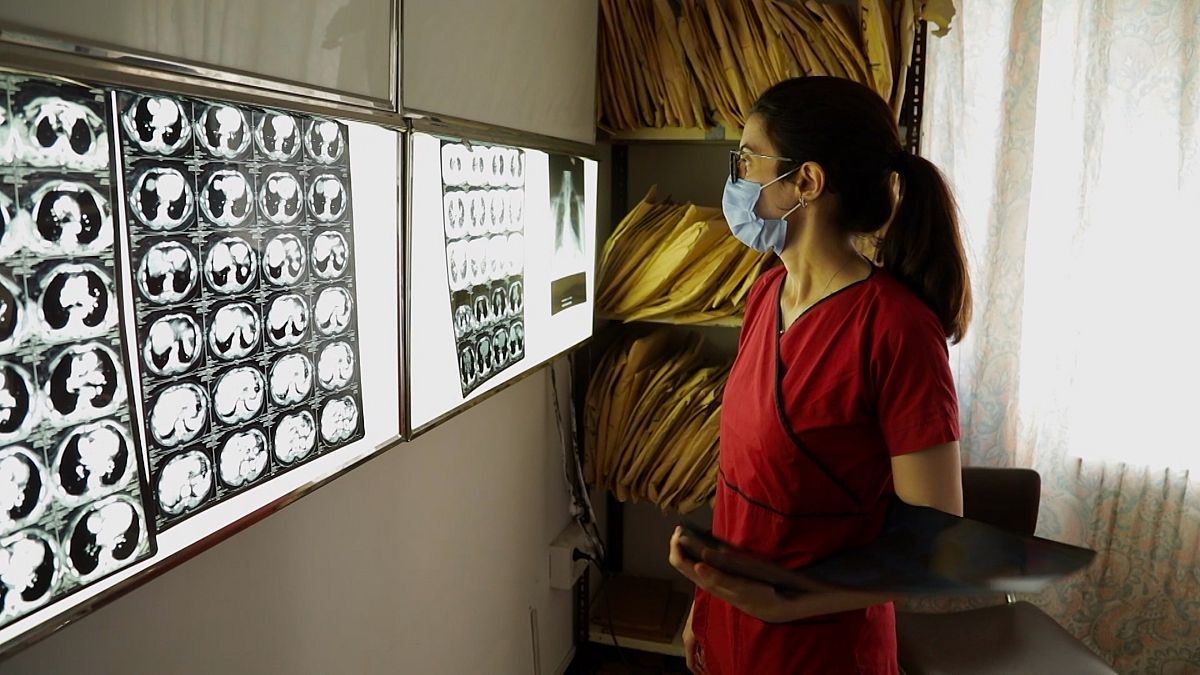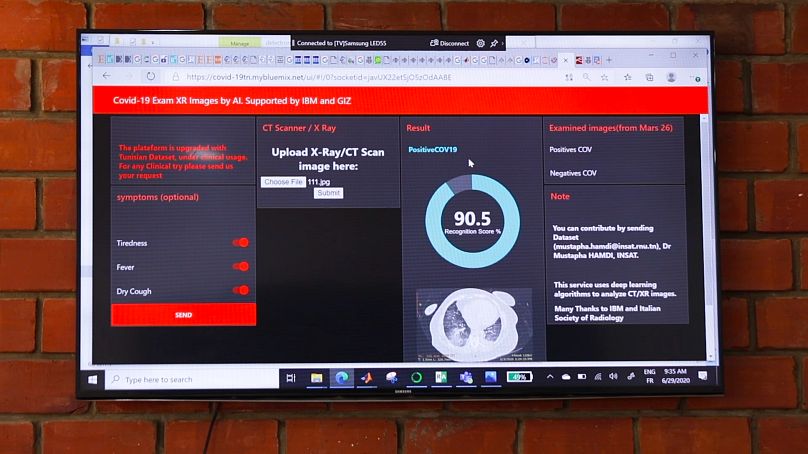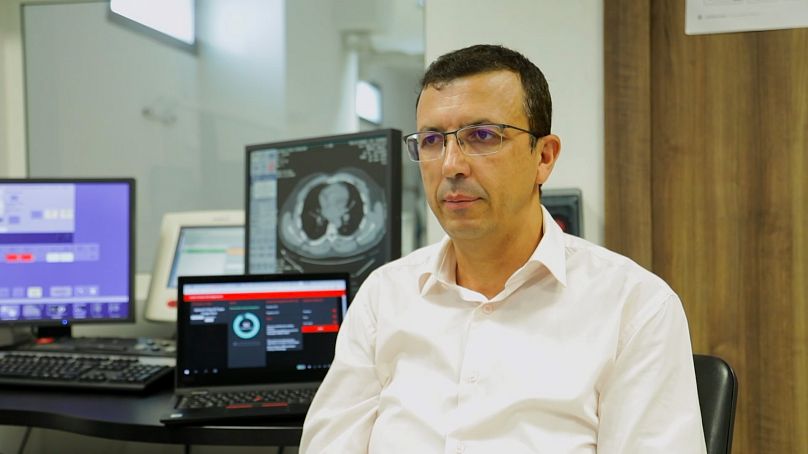Some hospitals in Tunisia are developing a variety of new technologies to combat the novel coronavirus, despite facing a number of setbacks in funding and resources.
Some hospitals in Tunisia are developing a variety of new technologies to combat the novel coronavirus, despite facing a number of setbacks in funding and resources.
To develop such technologies, medical researchers in the country received about 13 percent of public funds in 2019, according to the Journal of the Tunisian Republic.
Innovative tools
Dr. Mustafa Hamdi, along with his students at the National Institute of Applied Sciences and Technology (INSAT), has developed an online platform that helps detect COVID-19 in the lungs of suspected patients.
The platform compares the X-rays of a patient with COVID-19, to that of a person who is suspected of having the virus.
Dr. Hamdi says the algorithm used has a 92 percent accuracy rate, and is easily operated.
“It gives us a score in seconds, it’s instant,” says the artificial intelligence professor.
His project is one of 15 others approved by the Tunisian government since April of this year.
The project was achieved after two months of research, which began in March, with a budget of $3,000.
Omar Khouaga is a PhD student at INSAT working on the project, and says that his team’s work in Tunisia stands out from similar technologies that exist globally.
“This platform is present in Canada and China, as well, but the difference is that our platform is open access, it could be used by everyone,” he told Euronews.
In addition, he says the platform is able to save hours typically required to obtain results, it can conduct 1,000 tests per day, and save the government $265 per test.
Scanning for solutions
Dr. Taher Gargah, the director of health at the Ministry of Health in Tunisia, is a member of the scientific committee fighting COVID-19 in the country.
He believes the new discovery of this platform could be a game changer.
“This application can save us time, and gives us a diagnosis other than the regular test kit,” says Dr. Gargah. “It could give us the opportunity to prepare ourselves to prevent patients from going through the COVID-19 symptoms in time.”
The research team is continuing to develop the platform for uses beyond the pandemic at the Les Jasmin Private Clinic in Tunis.
“This centre is very well equipped, with the scanner and IRM, therefore we are planning on further developing our research to seek early detection of other diseases such as cancer,” says the invention’s founder.
The software is being tested for potential use in detecting cancerous cells inside patients’ lungs.
The Global Cancer Observatory estimates that about 46 out of 100,000 inhabitants in Tunisia will develop lung cancer between 2019 and 2024.
Nearly 70 beds, originally for lung cancer patients, were given to those with COVID-19 at Hopital Abdel Rahmen Mami Ariana in Tunisia.
It is hoped that this innovative application and others might lessen the burden on Tunisian hospitals when treating patients of the pandemic, and lung cancer, alike.
SEEN ON SOCIAL MEDIA: RESEARCH
Emirati biologist Mohammed is happiest when working in his UAE lab.


